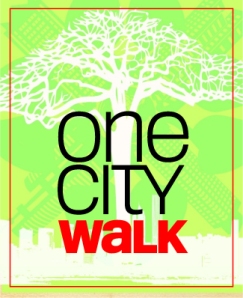This is the last of three related posts about the possibility of a broad rethinking of what progressive economic policy should look like, informed by For the Common Good: Redirecting the Economy toward Community, the Environment, and a Sustainable Future, co-written by a prominent economist (Herman E. Daly) and a philosopher-theologian (John B. Cobb Jr.). You can read the earlier posts here and here.
Over the last two decades neoliberal economic orthodoxies (favoring unrestricted free trade, unfettered movement of capital across international borders, unending population growth, industrialization of agriculture, and others) came to be regarded as received wisdom, with cheerleaders across the political spectrum. In the wake of the recent global financial meltdown, progressives have a critical opportunity to highlight the destructive and unsustainable consequences of the neoliberal paradigm and offer an alternative.
Loss of community is among the most important unacknowledged and unmeasured consequences of the neoliberal approach. As Cobb and and Daly write, “It now appears certain that strong, local community is essential to psychological well being, personal growth, social order, and a sense of personal efficacy” (pg 17). As they describe in detail, our present economic policies do not recognize this, and consequently they undermine our state of community at every turn.
Loss of community, of course, is not the only serious problem. As they describe, “Present-day society is locked into four positive feedback loops which need to be broken: economic growth which feeds on itself, population growth which feeds on itself, technological change which feeds on itself, and a pattern of income inequality which seems to be self-sustaining and which tends to spur growth in the other three areas” (pg 21). In addition to the loss of community they cause, these feedback loops now endanger no less than the livability of our planet.
Cobb and Daly offer sophisticated and detailed arguments which are beyond summary in a blog post, but their specific proposals involve: rethinking the wisdom of trade imbalances; de-industrializing and re-localizing agriculture so that it is environmentally sustainable and produces healthy food; rethinking our aversion to tariffs; rethinking our system of taxation; conceiving and encouraging the establishment and maintenance of an optimum population level nationally and internationally; developing a new index of economic progress which reflects our values more accurately, and a number of other proposals.
Whether their particular proposals are sound or not, the effort to formulate detailed recommendations that will result in a broad paradigm shift is an important one. Now is the time to start getting these fundamental theories and policy positions back on the table for reassessment. Over the last few years this effort has been coalescing. We have seen a number of prominent critics such as Nobel prize-winning economist Paul Krugman and former Secretary of Labor Robert Reich offer consistent and far-ranging critiques. Both Hillary Clinton and Barack Obama were willing to acknowledge that NAFTA may represent at least a partially misguided approach. John Edwards excoriated our Gilded Age levels of wealth and income inequality, and questioned exactly when we can expect the promised replacements for all of the well-paying working- and middle-class jobs we’ve lost. Even Alan Greenspan was forced to acknowledge that his laissez-faire ideology with regard to financial markets has been discredited.
Most of us agree that the protection of the environment is critically important. However, For the Common Good was published in 1994, before internet use became widespread. To what degree do you think virtual communities can substitute for in-person ones?
More from Beliefnet and our partners

